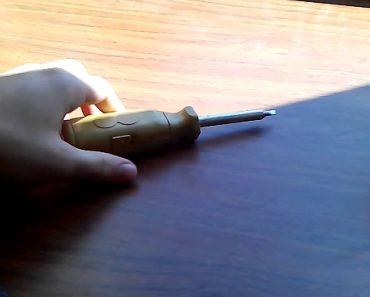Over the years, many folks from the prepping community have decided to make the transition to an off-the-grid life. With a bit of elbow grease and their resourcefulness, they’ve managed to get their home economics in order and reject the “consume culture.”
Living off the grid means getting out of the consumerism race and making a personal commitment to a frugal yet fulfilling lifestyle. Imagine what your life would be if you managed to slash your utility or grocery bills in half. How about being able to pay down your mortgage? Sounds like a dream, right?
Well, there are folks out there who managed to do it, and their tips about living with less and enjoying every minute of it will also help you to start saving big today. Here is a selection of tips that will change your life if and when you decide you’re ready to leave the “modern society” behind.
1. Shelter and clothing
When it comes to housing in the US, we are a nation obsessed with going big, and everyone wants a large home. However, going big is not the best option when moving off the grid because larger homes are more expensive to build, cool, heat, and maintenance is no easy task. On the other hand, if you reduce the size of your home to something, let’s say, cozier, savings will soon follow.
- Learn to become your own electrician and plumber. You can do so by checking out all the books you find in libraries (or free resources online), or you can invest in a class at the local vocational school.
- Don’t buy power tools unless you need them and you have to use them all the time. Rather than spending money on buying tools, you should join a tool-lending library. Don’t buy a tool that will be used to complete a single project.
- If you decide to start a construction project, build using mostly salvaged or scrap materials reclaimed from construction sites. You can check with demolition companies and even on craigslist for available salvaged building materials.
- If you have to complete a construction project that requires an additional workforce, try to barter construction labor with your neighbors, or perhaps, with your friends.
- Please don’t use a real estate agent when shopping for land unless you want to pay their commission. You can browse online for homes listed for sale. Even better, you can talk with landowners or their neighbors directly. This is an excellent way to discover properties that have never been listed.
- Try consignment shops and thrift stores to change your wardrobe since these establishments often have unique and affordable clothes. Even more, learn how to patch and repair clothing you already own before deciding to replace them. You should at least know how to sew a button, patch jeans, or darn socks. Even more, you can organize a clothing swap group and trade clothes you own for “newer” ones.
- After you wash your clothes, ditch the dryer and invest in a sturdy clothesline. Using a clothes dryer is not that expensive, but any saved dollar counts when you live off the grid. Put a clothesline in your sunroom or greenhouse, and that’s all you need. Also, get an excellent fold-up clothing rack that you can use indoors any time you need.
2. Home energy savings
How about improving your home’s energy performance before you decide where you can cut corners and save money on your utilities? If you manage to do so, you will save a pretty sum every year, you will have a more comfortable home, and your carbon footprint will be smaller.
- Some folks decide to invest in a solar or wind energy system when moving off the grid, but they do not spend the time looking into ways to make their homes as energy-efficient as possible. Think of it like this, the more efficient your home is, the less energy it will need to run, and you won’t have to invest your hard-earned money into state-of-the-art (i.e., expensive) renewable energy systems.
- All your appliances should be plugged into power strips that have an off switch. Then, every time those appliances are not used, the switch should be flipped in the off position, so they don’t pull power when they’re in standby mode.
- If you’re using a desktop computer or a laptop, make sure you adjust its power management settings so that it won’t stay on all the time. Every computer in your home should go into sleep or hibernate mode after several minutes of inactivity.
- Get rid of those inefficient incandescent light bulbs and invest in some LED bulbs or CFLs (compact fluorescent lamps). This investment will pay for itself after one or two years, and the high life of the bulb (around 30,000-50,000 hours) will continue to save you money.
- The AC issue becomes a real problem for some off-gridders, and those that cannot live without air conditioning should learn how to save a buck here and there. Open and close windows to regulate your home’s temperature, and use fans when needed to move air throughout the house. When using the AC, develop the habit of setting the thermostat at 70 degrees Fahrenheit or higher. It is estimated that every degree increase on the thermostat can save homeowners between 7 and 10 percent on cooling costs for the average home. How about painting your roof with a light color to decrease heat absorption?
- Replace your appliances (especially your fridge and freezer) with newer models that can save you money on energy costs throughout the appliance’s lifetime. Use your washing machine as little as possible and wash your clothes in cold water because friction (and not heat) does most of the washing.
- Seal and insulate all the heating ducts in your home because those healing ducts will lose up to 20-30% of heated air through cracks and openings.
- During the wintertime, use a heated mattress pad to maintain a comfortable body temperature at night. Also, wear thick clothes and use a small space heater in the room you spend most of your time (if that room can be closed off). These tricks can help you turn down the thermostat and save energy.
- Those that live in areas where access to woodlots is not a problem should try to heat their homes with a woodstove to save money.
3. Family health and hygiene
A good set of hair clippers will help you cut your family member’s hair, and it will save you money in the long run. I can’t remember the last time I went to a hairdresser.
- How about making your body care products? Most of the expensive store-bought items can be successfully replaced if you have the following ingredients: water, beeswax, medicinal and/or edible plant, and essential oils. Of course, if you learn how to combine them to obtain the care products you need.
- Living off the grid equals living outdoors, so keeping in shape shouldn’t be that difficult. Besides taking care of chores that demand great physical activity, many aerobic exercises can help you eliminate the need for a gym membership. Even more, spending time in nature does wonders for your mental health and helps reduce stress hormones.
- Eating well is another enjoyable advantage that off-gridders have, and in fact, it’s the best form of preventive medicine out there. Organic foods are free of chemicals and will provide your body with all the nutrients it requires.
- Most medicine that can be bought in today’s pharmacies originate from plants, and medicinal herbs are still used worldwide for manufacturing medications and whatnot. In addition, you can grow your own medicine in your backyard and use herbal medicine for most common ailments.
- If you reduce your stress levels and find mental happiness, you will improve your physical well-being and be less prone to illness. In addition, a healthy body doesn’t require “expensive maintenance,” and you will no longer finance your doctor’s new boat.
5. Food needs
If you hold on to your restaurants and grocery receipts for a month, you will notice where your food money is going and how the food price has increased in recent years. I guarantee you will be surprised by what you’ll learn.
- If you live off the grid, cooking at home becomes the norm, and going out to eat and spending money on fast food will become a rare indulgence. The best part is that all your cooked meals will be healthier because your cooking operation is directly related to your food growing process, and you’ll know exactly what goes into your meals.
- To save money and time, you can meal prep and cook big batches of food on weekends. You can refrigerate the meals and freeze the leftovers and use them throughout the week. You can prepare your snacks and lunch and take them to work so you won’t be tempted to visit the local fast food place.
- Americans spend a lot of money on their coffee, and few folks acknowledge how expensive their coffee shop lattes are. How about you make your coffee at home and fill your to-go cup whenever you hit the road?
- All the food that needs to be bought should be bought in bulk. Skip pre-packaged or prepared foods and get raw ingredients in size. You can join bulk food clubs that place orders directly with food companies, and you will save a lot of money on your food budget in the long run.
- Make every food staple you can think of at home. Foods such as bread or cheese cost one-third or less of what you’d pay at the store. Not only some of these foods are easy to make, but you can also experiment and create new recipes to satisfy your taste.
- Learn to pressure cook foods because you can buy things like dry beans and cuts of meat and pressure-cook them to save time. You can also organize a larder swap where you and your neighbors and friends can swap dried, frozen, canned, or ready-made meals for the things you need/want.
- Grow your fruits and vegetables or purchase the ones you can’t grow in season and preserve them so you and your family can eat them year-round. Even more, save the seeds and start your vegetables using those seeds rather than buying seedlings.
- Stretch your food growing season well into the winter, or start it early spring using cold frames, garden cloches, and hoop houses.
- Supplement your diet by learning how to hunt and fish. All the equipment you buy that may seem a costly investment at first will pay for itself once you stock your freezer with meat.
- Establish your meat-producing operation and start small to learn the pitfalls of the trade before moving to something bigger. Start with a few backyard chickens for egg or meat, a few rabbits, and a few goats. This small livestock will be more than enough to keep you busy for a while, and you will soon figure out if you are ready for bigger animals. For some, a few goats will provide enough milk to meet their needs, while others will decide to keep a dairy cow. However, taking care of a cow is a different story compared to raising a few goats.
6.Transportation needs
For off-gridders, transportation and travel costs are not neglectable since some folks live in remote areas. However, cutting your transportation expense should start with steps taken away from your vehicle. Not every trip requires the use of your automobile, and the sooner you deal with this reality, the more you will be able to save.
- Invest in a good bicycle (preferably an electric-assisted one) that you can use for short trips, to visit your neighbors, or to go to the local grocery store to get the stuff you need.
- If you live close to civilization, take advantage of car-sharing programs rather than buying and maintain a car. You could save all your errands that require the use of your vehicle for a single trip. If you commute by car, you could set up a carpool with your coworkers to save on fuel.
- If you do own a car, learn how to perform maintenance on it to avoid service fees. Changing the oil, replacing lights or car parts are not complicated jobs, and you can take care of them rather than paying someone to do it for you.
- If you own an older car model, you might want to change it for a more fuel-efficient model if you use it extensively. The fewer miles per gallon you get, the more money you can save on fuel costs annually. Even more, adjust your driving habits to achieve hypermiling and maximize fuel efficiency.
- Alternatively, you can produce your own ethanol by growing and processing corn or convert your diesel-powered machines to run on vegetable oil.
7.Entertainment
To be entertained as an off-gridder is not always a passive experience and most folks find pleasure in fixing, making, and tampering with things. It is a personal and pleasurable experience that provides joy when achieving the desired results.
- Some use their TVs and a Pay-per-view subscription to care for their entertainment needs, while others are just happy with their DVD collection. There are many options for mindless viewing even when living off the grid, and it’s up to you to find the one that meets your needs and helps you save money.
- When you want to go out, and someone needs to take care of your kids, rather than hire a babysitter, how about trading some babysitting time with neighbors and other families?
- Your town may offer some cultural entertainment in the form of free and inexpensive events. Check local announcement boards for benefit concerts, outdoor movie screenings, and other events that provide entertainment and the opportunity to socialize with your peers.
- During the holidays, save money on gift-giving by making something yourself. A crafted handmade gift has a more personal touch, and it should be appreciated by the person receiving it. If you decide to buy gifts, discuss setting a gift spending cap with family and friends.
Concluding
The tips listed in this article are just some of the first steps to help you achieve financial freedom if you decide to trade your city life for off-the-grid living.
Saving money is a habit you have to learn by yourself and improve over time. You will discover more ways to save money as you get used to your new lifestyle and tackle new projects yourself. Enjoying the ways of simple living may be a bumpy road at first, but in time you will reap the benefits of becoming self-reliant.




























